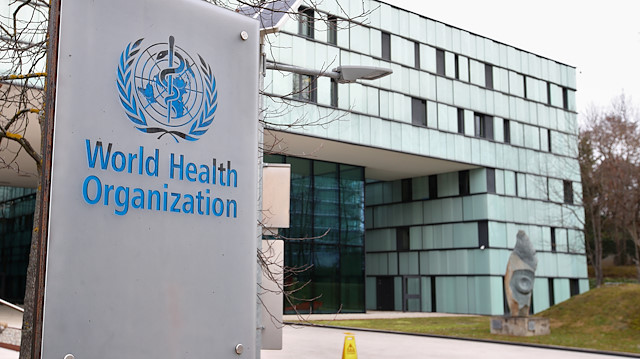

File photo
In past 2 weeks, COVID-19 cases doubled worldwide, 6 months after WHO declared COVID-19 health emergency of int'l concern
After nearly six months since the World Health Organization declared COVID-19 a public health emergency of international concern, the WHO said Monday it has counted almost 16 million cases and reported more than 640,000 deaths.
WHO Director-General Tedros Adhanom Ghebreyesus said at a twice-weekly press webinar that this Thursday will mark six months since the world health body declared COVID-19 a “public health emergency of international concern”.
"This is the sixth time a global health emergency has been declared under the International Health Regulations, but it is easily the most severe," said Tedros.
"And the pandemic continues to accelerate," he warned.
In the past six weeks, the WHO chief said the total number of cases has roughly doubled.
He noted that when he declared a public health emergency of international concern on Jan. 30 -- the highest level of alarm under international law – there were less than 100 cases outside of China and no deaths.
Tedros said that as required under the International Health Regulations, he will reconvene the WHO's Emergency Committee later this week to re-evaluate the pandemic and to advise him.
"COVID-19 has changed our world. It has brought people, communities, and nations together and driven them apart. It has shown what humans are capable of – both positively and negatively," said the WHO chief.
Although the world has changed, the fundamental pillars of the response to the novel coronavirus have not, he added, referring to the political leadership, as well as informing, engaging, and listening to communities.
"And nor have the basic measures needed to suppress transmission and save lives: find, isolate, test and care for cases; and trace and quarantine their contacts.
"Keep your distance from others, clean your hands, avoid crowded and enclosed areas, and wear a mask where recommended," said Tedros, repeating the WHO mantra to hold back the lethal virus.
He said that where the measures are followed, cases go down.
"Where they're not, cases go up."
The WHO chief also noted the pandemic illustrates that health is not a reward for development.
"It's the foundation of social, economic, and political stability. We are not prisoners of the pandemic. Every single one of us can make a difference. The future is in our hands,"
He stressed that one of the most fundamental ingredients for stopping this virus is determination, and the willingness to make hard choices to keep everyone safe.
#coronavirus pandemic
#COVID-19
#pandemic
#The World Health Organization (WHO)

